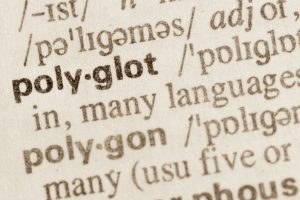
The first connotation of power is that of man over man. Power is conquest of the free will by “orders” and “compliance”. Power can easily give the impression in this assembly as the root of all evil in human civilizations and as the contradictory of liberty.
Nonetheless, the problem of power is more complex than it seems. And particularly in the case of the power of language, the problem is complicated. The power of language not only means language in the provision of power; language can also destabilize power.
And beyond all, as language, it retains itself power of a special kind. The relativeness of language and power goes hand in hand.
Language has definitely an allocation of authority. Language may preclude huge complications, it can also be the cause of the problems, and of course it can be the way of resolving a problem.
It devours the command to end conflicts. It devours to end harsh topics. Language is to interconnect and converse through people even with animals as well.
Language is in the direction of contributing opinions and concepts. Unfortunately, language stands for powerful upright ways.
It is also used to offend moods, to ruin people, and also, to destroy life. Perhaps they do not see the influence of language, in addition, they are expending it in the incorrect manner.
Words can enlighten our mind, touches and eases our feelings, stimulates our spirit, or earnests and light the flame of our hearts. Words can also blow our face, strokes us in the stomach, clatter our nerves, destroys our desire, or abolishes our self-confidence.
It can sensitively move and distresses us as strongly as bodily engagements. Unfortunately, we have yet to identify and legalize this great power in the way we ought, and we are left to contract with language in whatsoever means we have learned and embraced.
Additionally, the liberation perception explains us how to utilize and escalate the power of language with veracity. Veracity is the key word, because without it, the power of language is neglected. Veracity, or righteousness, in assertiveness, eradicates deception, manipulation, judgmental contentions, obnoxious tongue masses, and deceits.
Our bearing toward this communication arrangement, therefore, must be to domain its integrity by being humble and honest with the information that gets conveyed through it with the purpose of understanding it and having familiarity with it. The altercation of information should not be geared toward resentment and subjugation.
Judgments are not supposed to surmount feelings; feelings are not the opponents of beliefs. Fabrication is not to interchange truth even when we do not like it, and discovery is for accepting and not for denunciation.
By means of consuming the power of language to notify, so that we will be understood and recognized rather than to inaugurate advantage or supremacy, intimacy becomes the goal of the discussion.
Philological used for intimacy becomes the objective of the discussion. Language used for misuse disrupts the veracity of the system and the party, it ought not to be permissible.
In providing the power of language, its equitable place we ought to instill the power of eloquent speech that apprehends the strength of our feelings, deprived of expending them as weaponries, and we should not endure the misuse of this power that disrupts us and our system.
Moreover, which is perceived clearly, the power of language is not the collaboration of language with order and compliance; this utilizes language for objectives other than those which are intrinsic in it.
In the meantime, vehement rule as well as authentic rule must eventually depend on the power of language in imperative to be implemented, to grasp and to emphasize itself, indeed language is the susceptible predicament of the commanding power.
For the hidden purposes of a command can be translucent. The command can be submitted, but it can also be rejected; beyond all, it can be stated, understood and so inferred but retain the propagating power of language.
This tool can be comprehensive beyond the partisan scope. Without uncertainties, the power of language contains in the fact that it can be used for verbal inducement. But its own accurate power contains at least correspondingly in the fact that every “placing into language” already anchors within itself the fruit of hesitation.
Every single try to convince others with and through language is at all times also an effort to make oneself understood. And even the cleverest speaker cannot dominate the power of language.
For ultimately the power of language submits not with the speaker, but with language itself. And so this power fits to one and all who holds language. Whoever has a grasp of language has share in its power.
Language is not purely a mechanism in the hands of power, but also always a counter-power which cannot be controlled and inhibited. Power can repose on many aspects; for illustration, on the control of weaponries or coinage.
These are in short source; some own them and others do not. This illustrates the power of man over man. And it shows the omnipresent social assembly of power and disparity.
This assembly, however, does not acquire for the power of language. As with familiarity in general, so with language and the power that proceeds from it: it is inbounded separable and numerous. Whoever portions information misses nothing of his own share or ownership.
Everyone can advance knowledge without taking it away from anyone else. Correspondingly, everyone can achieve the power of language without arguing any people’s right to it.
Therefore, language is definitely powerful. In fact, it is more powerful than the majority of people think. It affects how we live our lives and affects what our understanding on other people’s language and culture as well. As when we express, our words create opinions that bring our realism into emphasis.










